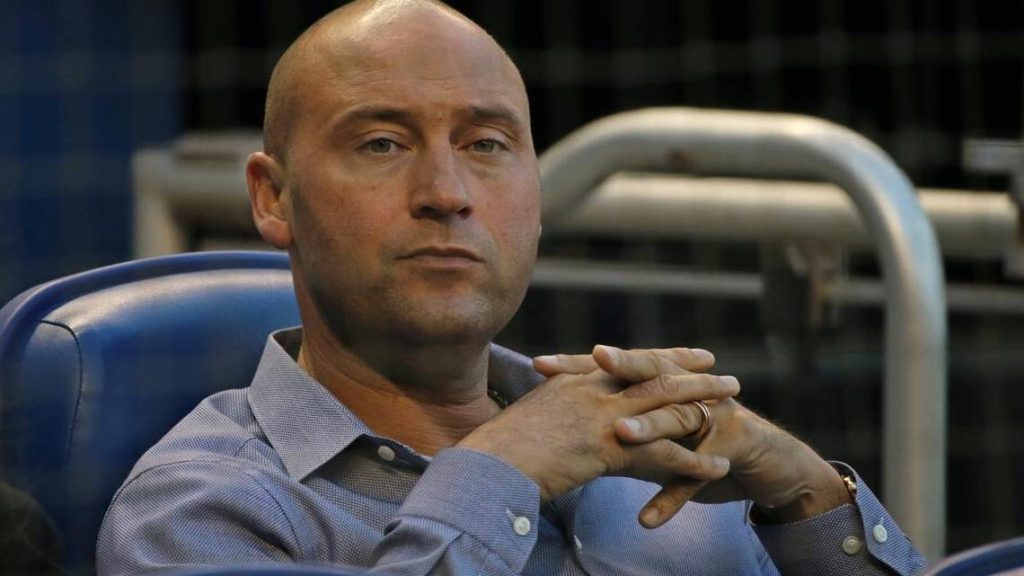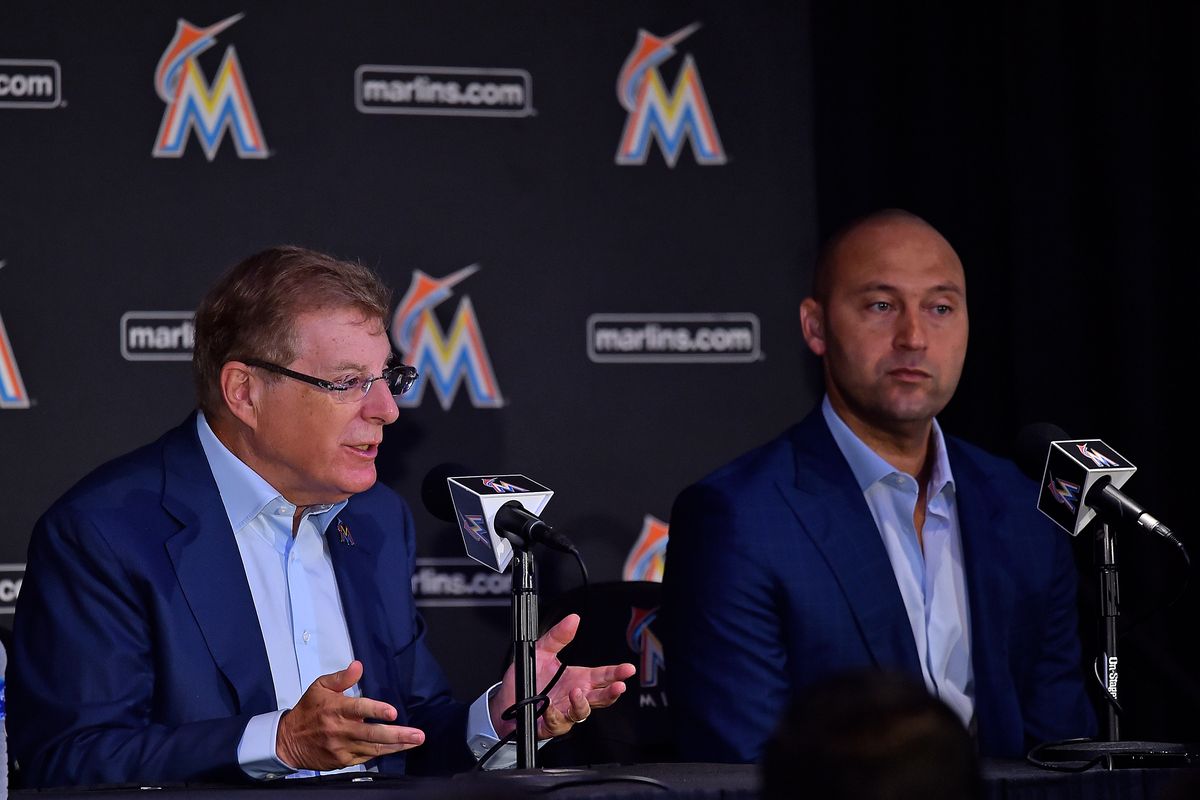Root, root, root for the … international offshore holding corporation?
The Miami Marlins are claiming corporate citizenship in the British Virgin Islands in an effort to have a federally appointed arbitrator take over the lawsuit by Miami and Miami-Dade County to recover a share of the profits from Jeffrey Loria’s $1.2 billion sale of the team to Derek Jeter and partners last fall.
Lawyers representing the Marlins told a federal judge that at least one corporation that owns part of Marlins Teamco — the company Jeter and majority owner Bruce Sherman formed last year to buy the franchise — is based in the Caribbean. As a result, team lawyers argued, the dispute with Miami-Dade should be governed by jurisdictional rules that apply to international disputes.
“One of the members of Marlins Teamco is a corporation incorporated in the British Virgin Islands with its principal place of business in the British Virgin Islands,” the Marlins wrote in the court filing last month. “Accordingly, Marlins Teamco is a citizen of the British Virgin Islands” under federal law governing treaties.
The legal argument drew a sharp brush back from county lawyers, who mocked the “Jeter Marlins” for invoking treaty law in a lawsuit involving a Miami baseball team and the municipal government that owns Marlins Park.
“This is the most local of disputes, involving a locally-negotiated contract made between local parties under local law and requiring local performance,” county lawyers wrote in arguing to keeping the lawsuit in Miami-Dade Circuit Court.
If successful, the Marlins’ request would strip the case from a Miami-Dade judge who has already sided with Miami and Miami-Dade in a preliminary ruling rejecting the arbitration that Loria lawyers requested from the outset. If the Marlins are deemed a foreign-owned corporation, a federal judge could take over and then consider whether to trigger an arbitration clause in the contract the two governments signed with Loria in 2009 to steer public dollars to a stadium complex that opened three years later.
Miami, which owns the Marlins’ parking garages, and Miami-Dade, which owns the stadium, are entitled to a share of certain profits from a team sale. But Loria lawyers claim the formula for calculating those profits yielded a paper loss of $140 million for a team that the New York dealer bought for $159 million in 2002.
Lawyers for Jeter insist the profit-sharing fight is between the governments and Loria, who agreed to put $50 million of sale proceeds in an escrow account to resolve any claim that the new owners might have to pay. But Miami-Dade sued a Loria entity and the new Marlins when it filed suit in February. Miami promptly joined the suit, setting up a high-profile legal dispute between Jeter and his new hometown landlords.
The litigation did not seem to dim relations between the new owner and local political leadership. Miami Mayor Francis Suarez and Miami-Dade Mayor Carlos Gimenez both threw out ceremonial first pitches on Opening Day, and the Gimenez administration is trying to accommodate Jeter’s request to move the ballpark’s county-owned “Homer” home-run sculpture off the property.
A Marlins spokesman declined to comment Monday. The lawsuit does not provide any details for the British Virgin Islands entity, Abernue Ltd. The suit said the company owns a piece of Marlins Holdings LLC, which is the sole owner of Marlins Funding, which is the sole owner of Marlins Teamco.
The suit does not identify the national origins of other owners of Marlins Holdings, and county lawyers said the omission strongly suggests those corporations are U.S.-based. If that’s the case, Miami-Dade lawyers argued, then the Major League baseball franchise in Miami should not be considered a foreign corporation.
“If even one of the Jeter Marlins’ members is a United States citizen,” the county wrote, “then the Jeter Marlins is a United States citizen.”
To read more:
https://www.sbnation.com/mlb/2018/4/11/17223806/marlins-british-virgin-islands-lawsuits


